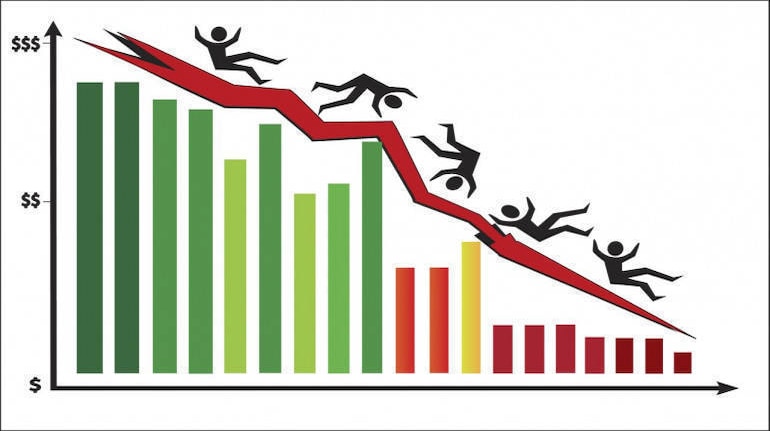



It was a ‘terrible Tuesday’ morning for Indian equities with the benchmark indices crashing more than 2 percent at opening bell after Russia recognised two rebel-dominated regions of Ukraine, escalating the simmering crisis that has scorched markets across the world for the past several days.
The tsunami triggered by heightened tensions and news of imminent war have eroded the market capitalisation of BSE-listed companies by a mammoth Rs 9.1 lakh crore over a period of only five days. February 16 was the last day when the Indian markets had closed in the green but since then the fall has been continuous.
On Tuesday, the 30-pack BSE Sensex opened with a loss of 1,245 points at 56,439, while the Nifty tanked 359 points to breach the crucial 17,000 levels and opened at 16,848. All other Asian indices were down more than 1 percent during the day.
All the sectoral indices on the NSE were down with Media and PSU banks being the biggest losers. The broader markets were also trading losses of 1.2 to 2.2 percent.
India VIX, which indicates the degree of volatility traders expect over the next 30 days, jumped significantly by 17.5 percent from 22.9 to 26.9 levels.
“Safe havens have rallied overnight. Yields on US treasuries have dropped about 7-8bps at the longer end. There is a chance that the Fed may recalibrate its tightening plans given the risks to growth from geopolitical tensions,” said the brokerage firm IFA Global in its morning note on Tuesday.
The biggest macro headwind for India is a rally in crude prices. The inflationary consequence of this will force the Reserve Bank of India to abandon its dovish monetary stance. Crude oil has surged about 3.5 percent to $97 per barrel, while gold has crossed the $1,900 mark amid risk aversion.
"The economic consequences are visible in higher crude and gold prices and the situation remains fluid with uncertainty around whether the tensions will escalate or be contained from now on,” VK Vijayakumar, Chief Investment Strategist at Geojit Financial Services, said.
“Buying opportunities may emerge in this correction but investors need not rush-in to buy as FIIs are likely to continue selling,” Vijaykumar said. “This will continue to depress the prices of some high quality financials. Nibbling in this segment can be considered.”
Experts suggest that since this is the monthly F&O expiry week, a surge in volatility may arise and they expect March to be even more volatile due to events like geopolitical uncertainty, results of state elections, and US Fed meeting.
“The overall trend is bullish but we may have high volatility over the next month therefore short-term traders should remain light while long-term investors should look at this correction as a buying opportunity” said Parth Nyati, Founder of Tradingo.
Disclaimer: The views and investment tips expressed by investment experts on Moneycontrol.com are their own and not those of the website or its management. Moneycontrol.com advises users to check with certified experts before taking any investment decisions.
Discover the latest Business News, Sensex, and Nifty updates. Obtain Personal Finance insights, tax queries, and expert opinions on Moneycontrol or download the Moneycontrol App to stay updated!